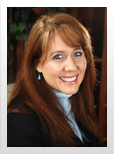|
To receive daily emails from Breaking Christian News to your inbox CLICK HERE
Have You Been Prescribed Pain Medication? Here's How to Avoid Getting Hooked on Opioids"There's a false assumption that if a drug came from a healthcare setting then it must be safe. But these are powerful medications that have serious risks; they require a physician's prescription for a reason." — Dr. Wilson M. Compton
Now, a comprehensive survey published July 31 in the Annals of Internal Medicine sheds light on what's causing the opioid epidemic and points to important steps consumers can take to reduce risks for themselves and the people around them. Government researchers relied on the 2015 National Survey on Drug Use and Health (NSDUH), a nationally representative survey of 51,200 adults who participated in face-to-face interviews. They found that opioid use has become routine: About 38 percent of Americans took at least one prescription opioid at some point in 2015. "We were aware that a large number of prescriptions were being written for opioids," says Wilson M. Compton, M.D., deputy director of the National Institute on Drug Abuse (NIDA) of the National Institutes of Health. "Still, it's really surprising to see that over one-third of adults in the U.S. took prescription painkillers." That points to doctors prescribing opioids too often, he says, and too little use of safer medications and nondrug therapies to treat pain. Even more disturbing: More than 12 percent of those who took prescription opioids—11.5 million adults—didn't use these highly addictive drugs as their doctors directed. That includes, for example, taking larger or more frequent doses than their doctors advised or even using opioids prescribed for someone else. Most concerning of all: Nearly 2 million adults are now reported to have become addicted to opioids. "This touches every strata of society. We're all struggling with this problem," says Karen E. Lasser, M.D., associate professor at Boston University Schools of Medicine and Public Health, who wrote an editorial addressing the study. Here are five steps our experts recommend that will help you use opioids more safely and also curb misuse of these drugs. 1. Don't Over-treat Short-Term Pain
But taking opioids for more than three days typically isn't necessary, and sharply increases your risk of getting hooked on the drugs, according to a recent CDC study. Talk to your doctor about using safer, over-the-counter pain relievers such as acetaminophen (Tylenol and generic), ibuprofen (Advil, Motrin IB, and generic), and naproxen (Aleve and generic) before using a prescription opioid, advises Consumer Reports' medical director, Orly Avitzur, M.D. Those can work quite well to alleviate pain after dental work, as well as from minor surgery or injuries, she says. Avitzur also advises talking to your doctor up front to let him or her know that you don't want more than a few days' worth of opioids. 2. Ask About Other Options for Pain Relief Opioids are essential for treating severe short-term pain from surgery or an injury as well as longer-term pain from cancer or a terminal illness, says Avitzur. "But they are not the best first choice for many other types of pain," she says. For example, other prescription medications work better for nerve pain, migraines, and fibromyalgia and are safer. When it comes to longer-term pain such as chronic back pain or arthritis, "opioids don't necessarily relieve pain much better or help you move more easily than OTC pain medications," she says. And the longer you take them, the greater your risk of addiction and overdose, especially when taking high doses. There's also mounting evidence that nondrug approaches such as acupuncture, chiropractic care, physical therapy, tai chi, and yoga can work as well or better than medications to relieve an aching back or joints. 3. Don't Borrow or Share Opioids The recent NSDUH national survey found that 40 percent of people who misused the opioids got them from friends and family members, making American medicine cabinets one of the primary sources fueling the opioid epidemic. "There's a false assumption that if a drug came from a healthcare setting then it must be safe," says Compton. "But these are powerful medications that have serious risks; they require a physician's prescription for a reason." An opioid dose prescribed for someone else could be dangerous for you, he says, or it could combine with other medications you take in a way that increases the risk of overdose. Consumer Reports
To receive daily emails from Breaking Christian News to your inbox CLICK HERE
Other Recent Articles from Breaking Christian News 'Dilbert' Creator Scott Adams Dies at Age 68 Ambassador Huckabee Predicts a 'Complete Realignment of the Middle East' [VIDEO] 100-Year 'Civilization Jihad' Plan: Trump Admin Labels 3 Muslim Brotherhood Groups as Terrorists Inflation Holds at Nearly Half Biden Era Rate, 'Core' Rate Lowest Since March 2021 Dems Sneak Hundreds of Millions in Abortion, LGBT Earmarks into Federal Budget Proposals How SCOTUS Seems to Be Leaning in the Cases of Protecting Girls' Sports Justice Alito Obliterates Trans Ideology Effortlessly in Oral Arguments President Trump: Federal Funding to Illegal Alien Sanctuaries Ends February 1st Franklin Graham Issues a Call to Prayer: Wednesday January 14th at Noon ET New Digital Project Allows the Shroud of Turin to Be Examined Online Trump Administration Ends Temporary Protected Status for Thousands of Somalis in US CNN Drops a Truth Bomb on the Left's Legal Efforts against ICE An Insider Describes the Harrowing Situation in Iran, as the People Continue Their Fight for Freedom Fight for Girls' Sports and Safety Taking Place in the US Supreme Court Air Force Sergeant Ordered to Remove 'Jesus Is My King' Flag from Residence What One State Found When Probing Voter Rolls for Noncitizens Federal Judge Blocks Mamdani from Halting Bankruptcy Sales |
All articles on this site and emails from BCN are copyrighted property of Breaking Christian News. Permission is given to link to, or share a BCN story if proper attribution is given to both the original writer and summarizer of the story. Breaking Christian News 2005-2019. All Rights Reserved.
Breaking Christian News is a division of Elijah List Publications, Inc. All Rights Reserved
Disclaimer: Articles and links, as well as the source articles linked to; do not necessarily reflect the opinion of Breaking Christian News.
| Home | Store | Subscribe | Facebook | Article Archive |



 (Washington, DC) — [
(Washington, DC) — [ Doctors contribute to the opioid epidemic when they overprescribe opioids to treat pain after a surgery or an injury, reports Compton. A
Doctors contribute to the opioid epidemic when they overprescribe opioids to treat pain after a surgery or an injury, reports Compton. A







